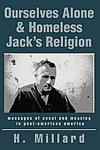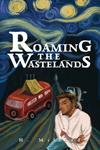 |
|
So, have the libs over at the Los Angeles Times finally discovered that genes matter? It's doubtful. Nevertheless, this week, the paper carried a column by Niall Ferguson entitled "Long live royal bloodlines!" in which Ferguson begins by telling readers, "Heredity Matters." Ferguson then goes on to write, "All 109,000 of the baby boys born Wednesday (yes, that's roughly how many are born every day in the world) inherited a Y chromosome from their fathers. All inherited a combination of genes from both parents, and these genes will help determine everything from the color of their hair to their aptitude at mathematics." One of the boys born on Wednesday, says Ferguson, was a son to Crown Prince Akishino and Princess Kiko of Japan--a son who is likely to become the next emperor of Japan.
Actually, a little more explanation is in order about chromosomes to help us understand heredity. How did Ferguson know that all those boys got that Y chromosome from their fathers? Easy. All males carry a Y and an X chromosome and all females carry two X chromosomes. The only way you can end up a male is to get the Y from your father, which your father got from his father, which he got from his father, etc. That's part of a family's bloodline.
It's pretty simple stuff and just common sense to those who understand a little about genes, but seeing a column about such things in the Times was a bit of a shock. What will the brainwashed children think? "Mommy, you mean that people are the way they are because of their genes (which are carried by the chromosomes)? Isn't that racism, mommy? Don't we all bleed red blood? What does he mean by 'royal bloodlines' ? Aren't all bloodlines the same? Aren't we all blank slates and then become what we become because of circumstances? Aren't we all the same under the skin?" Sorry kid, you've been lied to by America.
Now, Ferguson's column wasn't really about heredity, per se, even though that was the first word in his column, but was more about monarchies and other forms of government and how and why they exist. However, anyone who does understand a little about genes realizes that the principles that apply to royal families and their bloodlines apply to all families and to all living things that reproduce as humans reproduce, i.e. with males and females each contributing one half of the DNA to offspring.
Each human carries 46 chromosomes. The chromosomes carry our genes. When we humans mate, the new child gets 23 chromosomes from his or her father and 23 chromosomes from his or her mother. If the father and mother are of the same genotype, their child will have a phenotype that has the child look very much like both of them. In other words, the two similar halves will equal a new whole that is similar to the similar parents. If the father and mother are of different genotypes, their child will differ from both of them. A word or two of explanation is in order at this point. As you may recall, a genotype is sort of like the complete blueprint of all of our genes while a phenotype is the exterior or outward manifestation of the genotype--the finished product--eye color, etc.
To understand all of this, it might be helpful to think of a blueprint of a house being ripped in half and then being taped to another blueprint of a house that was also ripped in half. The resulting full blueprint will help you build a complete house. If the two halves are from the same model house, taping them together will produce a new house that is pretty much the same as both original blueprints.
Royals take the blueprint even further. The reason that royals are only supposed to marry other royals is to keep the royal blood pure: to keep the two halves very, very similar. If one half is not of royal blood, then the child is usually not able to ascend to the throne. Of course, in a small breeding population of royals, this may lead to harmful recessive traits being passed on in the family line. Hemophilia, is one well known trait.
An interesting sidelight is that hemophiliacs are almost always male. From this, you might think, that since only males have a Y chromosome, the abnormal gene is on the Y chromosome. You'd be wrong. Hemophilia is actually passed on to males by their mothers if these mothers have the abnormal gene on the X chromosome that they pass on to their sons. Daughters are usually spared the problem because they have two X chromosomes. So, even if they get an abnormal gene on the X chromosome from their mother, they'll have a "spare" in the X chromosome that they get from their father.
As a practical matter, it is difficult to determine complete genotypes, so scientists and some of those who are interested in gene survival and who are opposed to genocide, look to the visible phenotypes for clues. It's not difficult. Look for the things you can see. If you like yourself and who you are and you want some of you to go forward through history, that is, if you want to have your eye color, your hair color, your skin color, your physical characteristics (and presumably your unseen characteristics as well) carried over into a child--to survive--then your best bet is to mate with someone who shares these characteristics with you. Again, this is just common sense, but in this present Dark Age where we are not supposed to believe in human differences, it may be necessary to say these things again and again. Like with like produces like. Like with unlike produces unlike.
If one goes even further and accepts, what is probably more in the realm of religion and belief--at least in its full ramifications--that the essential us; the real us, or at least some important part of the real us, as opposed to isolated individual "bolt-on" characteristics that we can see or observe, survives through our genes in a meaningful way, then one must logically accept that it is important to choose mates wisely. And, are we not the sum of our parts? If we add up all our parts, don't they make us?
Ah, but some may be saying that we are more than the sum of our parts. They may say that we have life and even if we can't find that body part called "life" it's there. Well, not so fast. We're actually not much different from so-called non-life. We simply have the chemical and other reactions going on in us that we call life. We're baking soda and vinegar, dear friends. And, when we stop fizzing, we return to the inanimate form.
Don't buy it? Consider, by way of analogy: Where is that "part" which makes your car run--that thing within your car which is similar to that thing within you that you call life? Take your car down to its nuts and bolts and you won't find that which makes it work. Assemble all the parts and it works. Life is similar. Our parts are important to who we are--including those exterior parts that you might think are just bolt-ons. They're part of our identity. Without all our parts, we're not us.
In his column, Ferguson goes on to write, "To Americans, it all seems absurd [the belief that bloodlines are important]. What could be sillier than to permanently confer a title like 'emperor' on the members of a single family--and only the males at that?"
Silly? Not really. How did the first emperors or kings come into existence? They were the leaders of their people. And, they were leaders presumably because they were the bravest or the strongest or the smartest or in some way more fit than others in such ways that others would follow them. This being the case, it made sense to believe that the children of the royal line would carry some of what made their parents the leaders and thus the children would also be able to lead the people so that the people would prosper.
Yes, as Mr. Ferguson wrote: Heredity matters. It matters to all of us even if we are blinded by the American disease of not believing it is so.
|
|
# # # |
|
THREE BOOKS BY HARD TO PIGEONHOLE H. MILLARD All three books are now listed on Amazon.com. The lefties at the OC WEEKLY said Millard is one of OC's most frightening people. "Millard is an important writer" New Nation News |
 |
Ourselves Alone & Homeless Jack's Religion |
 |
ROAMING THE WASTELANDS |
 |
THE OUTSIDER - (ISBN: 0-595-19424-9) |
| Views expressed by guest columnists, reporters and external links not necessarily those of the editor of New Nation News but hopefully of some interest |